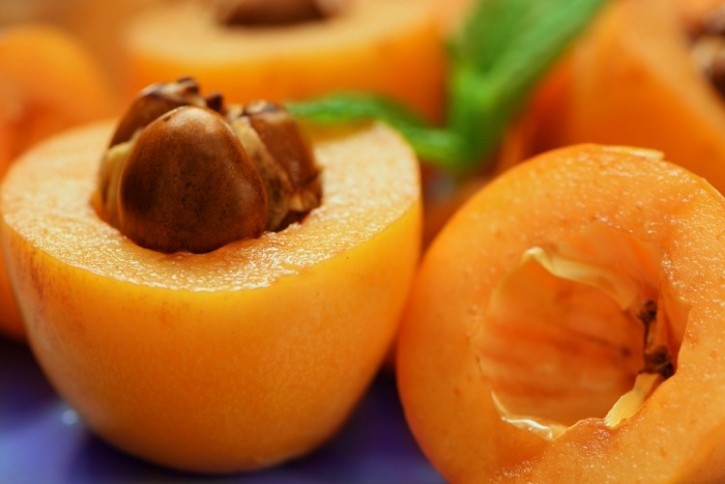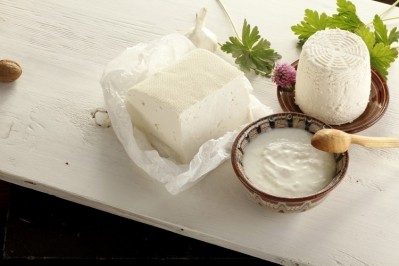Could loquat fruit be the next big trend in yogurt?

The global probiotic yogurt market is among the fastest-growing categories in dairy. Valued at $26.5m in 2023, the market size is expected to more than double in 10 years, reaching a valuation of more than $58m by 2033 according to Future Market Insights. This is hardly surprising, since yogurt has traditionally been one of the most popular fermented food products globally, and consumers are increasingly aware of the link between good digestive health and overall wellbeing.
While the category is not short of innovation around taste, texture and nutrition, attracting consumers through new flavor experiences remains important when it comes to fermented foods – Mintel consumer research indicated that 43% of shoppers would be more likely to try a new functional beverage based on appealing flavors.
Meanwhile, studies, such as this 2017 paper1, suggest that adding fruit to yogurt provides probiotics, prebiotics, protein, fatty acids and a mixture of vitamins and minerals. Tropical fruits have also been shown to enhance the nutritional value of yogurt2 while offering consumers a sense of escapism.
But what could be an exotic fruit that has the right functional benefits and grab shoppers’ attention?
Loquats, also known as Japanese plums, are apricot-sized bright orange fruits that are sweet and slightly tangy. Loquats are high in fiber, which supports probiotic growth, and have been used as a home remedy against inflammation, cough, diabetes and other health problems for centuries. Despite its name, the plant likely originates from China and today is predominantly grown in regions with warm, wet climate, such as South Asia, the Middle East, Australia, New Zealand, South Africa, the Mediterranean, and parts of South America. While it is widely recognizable in Asia, the fruit is less popular in the US and Europe.
Due to its relatively short shelf-life, loquats are often processed into preserves such as marmalade.
Recently, a study carried out by scientists from Turkey’s Ataturk University’s Technical Vocational School tested the suitability of loquat marmalade as a functional ingredient in probiotic yogurt. Professors Tamer Turgut and Abdulkerim Diler examined how enriching plain yogurt with different amounts of the fruit preserve altered the dairy product’s functional and flavor properties.
The academics worked with four samples, a plain probiotic-enriched yogurt with no fruit added to it, and three samples where 5%, 10% and 15% of fruit respectively had been added. The cow’s milk yogurt prepared for the trial was enriched with probiotic cultures containing S. thermophilus, L. bulgaricus and Bifidobacterium species, while the loquat marmalade was made from fresh fruit purchased locally. All four yogurt batches were filled into jars and stored for 21 days, with the researchers testing the samples’ physicochemical, microbiological and sensory properties on days 1, 7, 14 and 21.
The results, published in Frontiers in Nutrition and referenced below3, revealed that loquat marmalade had ‘a remarkably positive impact’ on yogurt’s textural and sensory properties when 15% of fruit was added, while adding just 10% was deemed enough to enhance taste and texture.
The addition of the fruit preserve did not negatively affect the vitality of probiotic bacteria during the trial either, with the researchers concluding that the levels of beneficial bacteria only started to decline after the end of the 21-day storage period.
“The present study reveals that the incorporation of 15% LM [loquat marmalade, ed.] had a remarkably positive impact on the sensory and textural properties of the yogurt. However, the effect was uncertain with the use of 5% LM. Therefore, it can be concluded that a 10% LM ratio can serve as the acceptable threshold limit for optimal sensory and textural properties of loquat fruit yogurt,” the researchers concluded. “The addition of LM improved the flavor, odor, acidic taste, and overall acceptability scores. This concludes that loquat is a suitable choice for probiotic yogurt production in terms of its sensory properties.”
Sources:
1. Potential Health Benefits of Combining Yogurt and Fruits Based on Their Probiotic and Prebiotic Properties
Marette, A., Fernandez, M. A.
Published: January 2017, Elsevier, Advances in Nutrition
DOI: 10.3945/an.115.011114
2. Antioxidant, mineral and hydrophobicity properties of value added yoghurt made from tropical fruits
Ibhaze, G. A., et al
Published: February 2022, Animal Research International
3. The effect of addition Eriobotrya japonica L. marmalade on physicochemical, microbiological, and sensory properties of probiotic yogurts
Diler, A., Turgut, T.
Published: 30 March 2023, Front. Nutr.
DOI: 10.3389/fnut.2023.1151037








